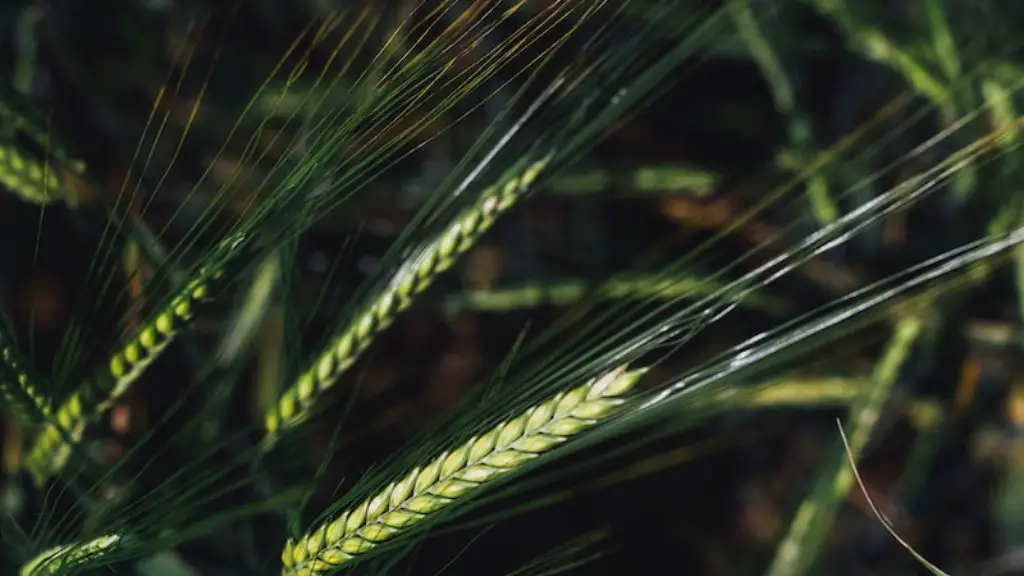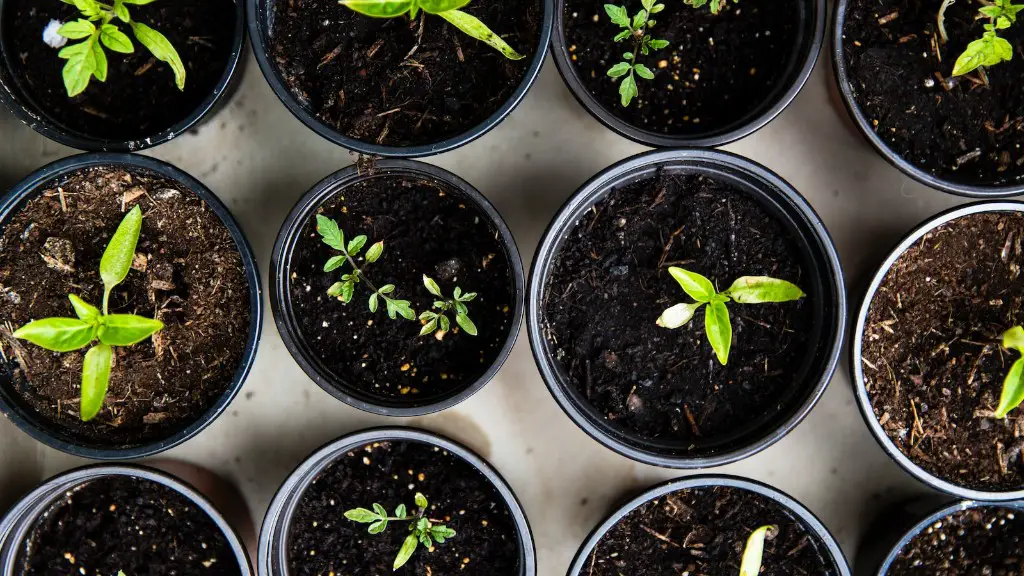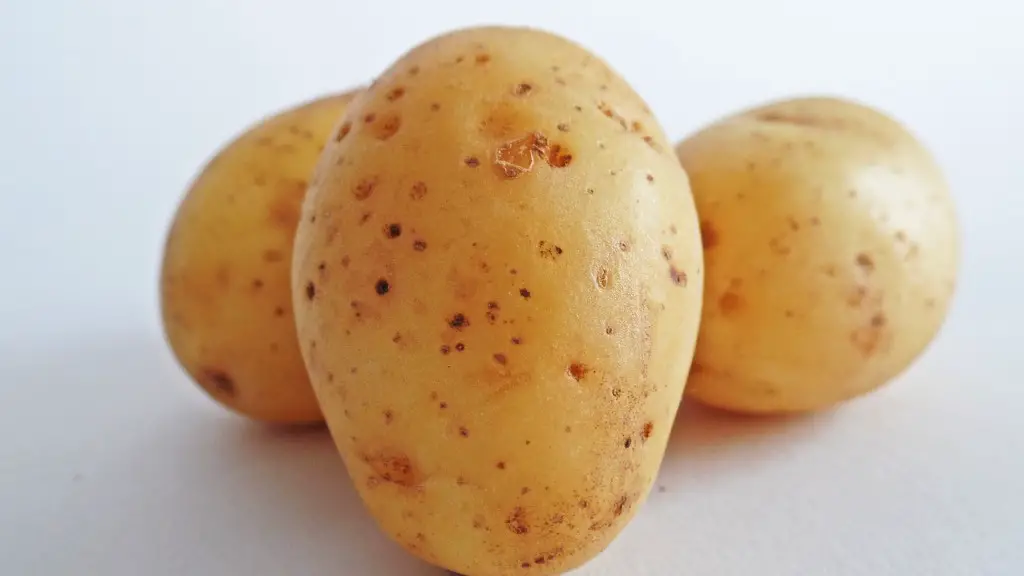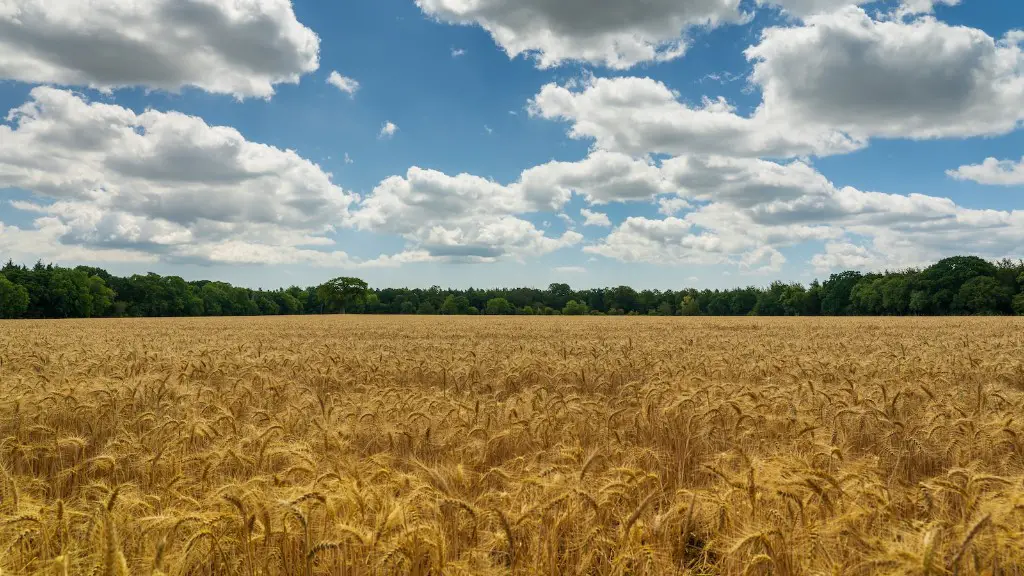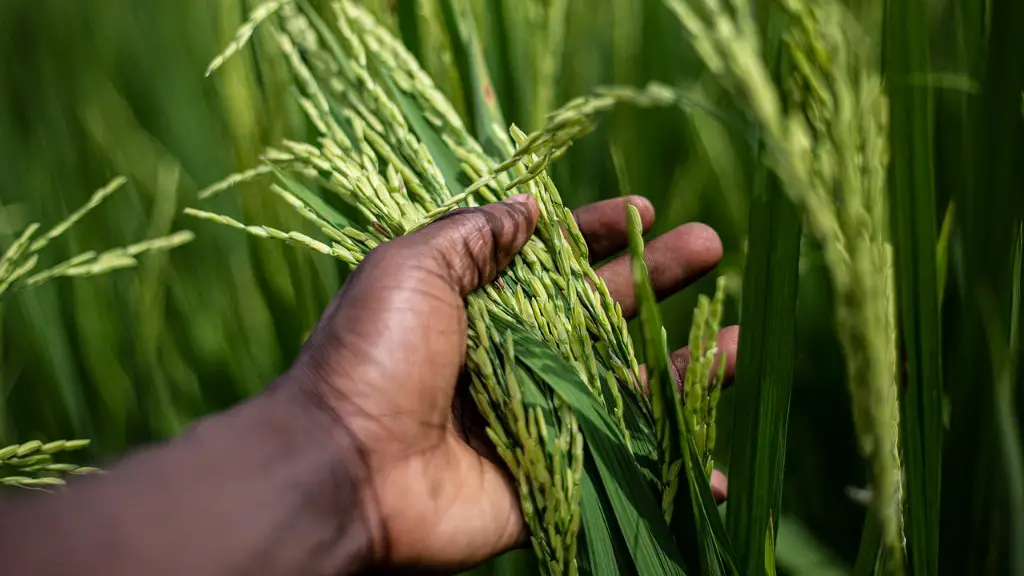In sustainable agriculture, farmers strive to meet the needs of the present without compromising the ability of future generations to meet their own needs. This type of agriculture is important because it is a more environmentally friendly and sustainable way to produce food.
Sustainable agriculture is a type of farming that focuses on producing crops in a way that is environmentally friendly and doesn’t deplete the soil. This type of agriculture is important because it helps to preserve our natural resources and ensures that future generations will be able to enjoy them as well.
What do you mean by sustainable agriculture?
A sustainable agriculture approach is one that seeks to utilize natural resources in a way that allows them to regenerate their productive capacity, while also minimizing any harmful impacts on ecosystems beyond a field’s edge. This type of approach can help to ensure that food production is sustainable in the long term, and can help to protect the environment from any negative impacts of agriculture.
Sustainable agriculture practices are those that are environmentally friendly and help to conserve natural resources. Some common sustainable practices include rotating crops, planting cover crops and perennials, reducing or eliminating tillage, and applying integrated pest management. These practices help to improve soil health, reduce pollution, and conserve water and energy.
How does sustainable agriculture help the economy
In the last half century, agricultural TFP growth has helped reduce poverty, increase food security, decrease land expansion and associated biodiversity loss, and mitigate greenhouse gas emissions. It has supported economic growth that has put money in farmers’ pockets and boosted rural economies.
There are many ways to manage soil health, but some common practices include using organic matter to improve soil structure, maintaining proper pH levels, and using cover crops and crop rotation to improve soil fertility.
What are the 3 main components of sustainable agriculture?
The basic goals of sustainable agriculture are environmental health, economic profitability, and social and economic equity. Agricultural production must be environmentally sound, economically viable, and socially just in order to be sustainable.
Sustainable agriculture is the practice of farming in a way that is environmentally responsible and resource-efficient. Sustainable agriculture includes a wide range of practices, including but not limited to: permaculture, biodynamic farming, hydroponics and aquaponics, urban agriculture, and agroforestry.
Each of these methods and practices has its own unique benefits, but all share the common goal of being more environmentally sustainable than traditional farming methods. By using sustainable agriculture methods, we can help to protect our natural resources, improve the quality of our food, and make farming more economically viable in the long term.
What are the 5 main components of sustainable agriculture?
Sustainability is a key concern for the food and agriculture industries. To ensure the long-term viability of these industries, there are a few key principles that must be adhered to.
1. Increase productivity, employment and value addition in food systems: In order to sustain the food and agriculture industries, it is essential to increase productivity and value addition. This can be accomplished by investing in research and development, adopting new technologies, and improving worker skills.
2. Protect and enhance natural resources: The food and agriculture industries rely heavily on natural resources. Therefore, it is crucial to protect and enhance these resources through conservation and sustainable management practices.
3. Improve livelihoods and foster inclusive economic growth: The food and agriculture industries provide livelihoods for millions of people around the world. To ensure inclusive economic growth, it is necessary to invest in smallholder farmers and create an enabling environment for private sector involvement.
4. Enhance the resilience of people, communities and ecosystems: The food and agriculture industries are vulnerable to shocks and stresses such as climate change, pests and diseases. To build resilience, it is important to invest in early warning systems, risk management, and insurance.
5. Adapt governance to new challenges: The food and agriculture industries
There are six main challenges of sustainable farming:
1. Growing enough food
2. Water scarcity
3. Loss of usable land
4. High energy use
5. Climate change
6. Cost-efficiency of sustainable practices
What is the best method of sustainable agriculture
Permaculture is a technique that seeks to mimic naturally established ecosystems in order to promote sustainability. The key elements of permaculture are reducing waste, using replenishable resources, tackling pollution, and improving soil fertility in ways that are friendly to the environment. By imitating natural systems, permaculture can help to conserve resources and promote a healthy and balanced ecosystem.
There are several ways to increase profitable farm income while promoting environmental stewardship and enhancing quality of life for farm families and communities. One way is to increase production for human food and fiber needs. This can be done by improving farming practices, developing new and improved crop varieties, and increasing yields. Another way to increase farm income is to value-added products and services. This can be done by diversifying farm operations to include value-added activities such as agritourism, on-farm processing, and direct marketing.
What are the pros and cons of sustainable agriculture?
There are many advantages to sustainable agriculture, but it also has some downsides. For example, sustainable agriculture can help reduce costs, control pollution, and promote social equality. However, it can also take longer for farmers to carry out their operations.
We cannot stress enough the importance of conserving the environment and preventing pollution. By adopting sustainable practices, farmers will reduce their reliance on nonrenewable energy, reduce chemical use and save scarce resources. Keeping the land healthy and replenished can go a long way when considering the rising population and demand for food.
Who benefits from sustainable agriculture
According to the United Nations, agriculture is responsible for generating 80% of the world’s food supply. It is clear that agriculture is vital to human survival. However, the way we currently produce food is not sustainable. It is estimated that by 2050, the world’s population will reach 9.1 billion people. In order to feed all of these people, we will need to produce 70% more food than we do today. The problem is that the land we use for agriculture is limited. If we continue to use traditional farming methods, we will soon run out of land to farm.
Sustainable agriculture is a type of agriculture that is practiced in a way that is environmentally responsible and that protects the long-term health of the land. Sustainable agriculture also promotes economic stability for farms and helps farmers to better their quality of life. In order to achieve these goals, sustainable farmers use a variety of methods, such as reducing tillage, planting cover crops, and using organic fertilizers.
The adoption of sustainable agriculture practices is essential if we want to be able to continue to produce food for the growing world population. While it may be difficult to change the way we have always done things, it is important to remember that the future of our food supply depends on
Sustainable agriculture is an approach to food production that focuses on minimizing the negative environmental impact of farming while still being able to meet the needs of the world’s growing population.
The challenges of sustainable agriculture include:
– Growing enough food to meet the needs of the world’s growing population
– Loss of usable land due to factors such as climate change and urbanization
– diminishing resources such as water and energy
– Political and legal requirements that can limit the options for farmers
Despite these challenges, sustainable agriculture is essential for the long-term health of our planet and its inhabitants. With careful planning and innovative thinking, we can meet the needs of both people and the planet.
What are 2 things that agriculture can do to create sustainable farms?
It is evident that the excessive use of chemical fertilizers and pesticides has caused great damage to our soil and water resources. In order to protect these precious resources, it is important to reduce our reliance on these harmful chemicals. Additionally, the rise of agtech provides us with an opportunity to increase yields in a more sustainable way. By utilizing traditional knowledge and combining it with modern technology, we can create a more environmentally friendly and productive agricultural system.
There are many sustainable foods in the world, but here are six of the most sustainable:
Mushrooms: Because mushrooms can make use of by-products recycled from other crops as compost for growth, they have an extremely low environmental impact.
Pulses: Pulses are annual leguminous crops that are harvested for their dry seeds. They are often used in soups, stews, and other dishes. Because they are nitrogen-fixing crops, they help to improve soil health.
Mussels: Mussels are a type of shellfish that is often consumed as food. They are filter feeders and help to clean the water in which they live.
Seaweed: Seaweed is a type of algae that grows in the ocean. It is a source of food and fuel for many animals and is also used in cosmetics and pharmaceuticals.
Cereals and grains: Cereals and grains are an important part of the human diet. They are a major source of nutrients and can be grown in a variety of environments.
Organic fruit and vegetables: Organic fruit and vegetables are grown without the use of synthetic pesticides and fertilizers. They are often more nutritious than conventionally-grown fruit
Conclusion
Sustainable agriculture is a type of farming that focuses on producing food in a way that is environmentally sustainable. This means using methods that do not deplete the soil or harm the environment, and that focus on producing healthy food for consumers. Sustainable agriculture is important because it is a more sustainable way of producing food, and because it can help to reduce the negative environmental impact of conventional farming.
Sustainable agriculture is a type of farming that focuses on producing food in a way that is environmentally friendly and does not deplete the resources that are necessary to produce food. Sustainable agriculture is important because it protects the environment, helps to conserve resources, and can help to ensure that food is produced in a way that is safe and nutritious.
